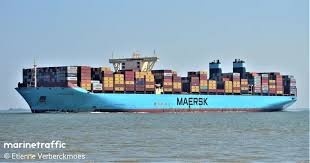Maersk: Transforming the Global Shipping Industry

Introduction
Maersk, the world’s largest container shipping company, holds a pivotal role in global trade and commerce. With a fleet of over 700 vessels and operations in more than 130 countries, Maersk has been a cornerstone in connecting economies across continents. The company’s significance has grown in recent years as it embraces digital innovation and sustainability initiatives in response to an evolving market and global environmental challenges.
Recent Developments
In 2023, Maersk has expanded its service offerings to include a broader range of logistics solutions beyond traditional shipping. The company launched its new digital platform, Maersk Flow, which enables customers to manage their supply chains more efficiently through real-time data analytics and improved visibility. This shift towards digitalization is aimed at providing added value to clients and streamlining operations in an increasingly complex global supply chain landscape.
Furthermore, Maersk has made headlines with its commitment to sustainability. The company aims to be carbon neutral by 2050 and has invested heavily in alternative fuel technologies, including biofuels and hydrogen. In 2023, Maersk introduced several vessels powered by biofuel, marking a significant milestone in its efforts to reduce its carbon footprint. This initiative aligns with wider industry efforts to combat climate change and aligns with the UN’s Sustainable Development Goals.
Challenges Ahead
Despite its advancements, the company faces several challenges, including port congestion and fluctuating freight rates driven by global economic conditions. The COVID-19 pandemic had lasting ripple effects on the global supply chain, prompting Maersk to adapt quickly to changing customer demands. The company’s proactive approach to logistics and supply chain management is crucial to navigating these challenges.
Conclusion
Maersk’s influence on the global shipping industry is undeniable, with the company continuously adapting to meet the needs of its customers while promoting sustainability. As global trade continues to evolve, Maersk’s innovations and strategic initiatives will play a critical role in shaping the future of shipping and logistics. Stakeholders and consumers alike should closely watch how the company navigates ongoing challenges and opportunities in the coming years.









